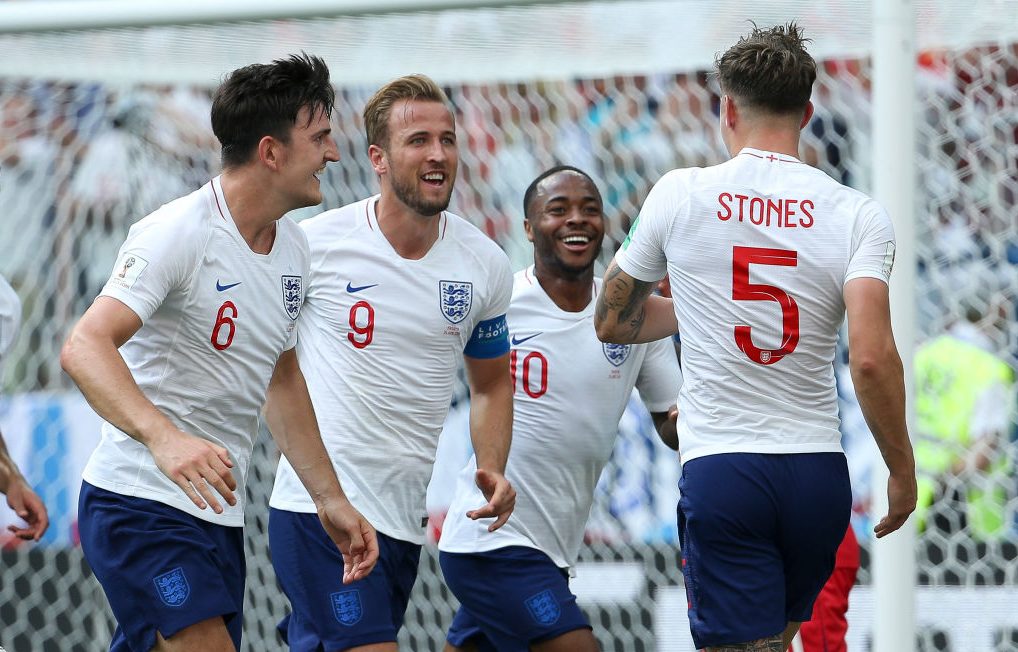The phrase of “it is coming home” is always heard loudly when the England national team competes in a major tournament. Not only supporters in the stadium, fans on social media were also busy talking about it, especially on the day of the Three Lions match. The term “football’s coming home” comes from the song “Three Lions” by Liverpool rock band The Lightning Seeds. The song was released in 1996 as the official song for the 1996 European Cup in England. “Three Lions” was then widely adopted as a support song when England competed.
Along with the success of the national team in the 2018 World Cup and Euro 2020, the buzz of “football’s coming home” is getting louder. Gareth Southgate’s men made it to the semifinals three years ago. So far, they have also reached the semifinals of the European Cup. When the song was made, the meaning of “coming home” was that football (big tournament) was held again in the “homeland”. England is considered the place of origin of modern football because the initial formulation of this game was coined in Britain in the 19th century. Now, the term “football back home” means the return of the international tournament trophy to the arms of the England national team, which last won the 1966 World Cup.
The lyrics performed by The Lightning Seeds seem timeless. It is always relevant thanks to new meanings. Given the magnitude of this anthem’s legacy many years later, the FA’s decision to replace the 1996 European Cup official anthem with “Three Lions” was right. Originally, the official anthem for Euro 1996 was not “Three Lions”. Jack Pitt-Brooke, in his report for The Athletic, said organizers initially designated Simply Red’s “We’re In This Together” as the official anthem. However, the song was deemed not interesting enough to ignite euphoria.
Rick Blaskey, a former record company executive, was asked by the FA to find a song that could add to the appeal of the 1996 European Cup. During a meeting with the FA, he was presented with a document made by Saatchi & Saatchi, an agency used as a tournament promotion consultant. The document is titled “Football Comes Home”. Blaskey immediately got a topic idea to work on. Frank Skinner and David Baddiel, two presenters of the Fantasy Football League, a popular comedy show in England at the time, were asked to write the lyrics. The Lightning Seeds vocalist Ian Broudie was appointed to compose the music. On May 20, 1996, the song “Three Lions” was released to the public.
The song immediately became a hit in the UK. The lyric “football’s coming home” was liked by the fans and became a song in the stadium. Shortly after its release, the song reached number one on the UK Singles Chart. “Three Lions” went on to break records as the first song to top the UK Singles Chart on four different occasions. Interestingly, in 2018, this song also broke the record as the song with the most drastic drop in ratings. After England’s defeat to Croatia in the World Cup semifinals, the song’s ranking dropped from the top spot to 97th position.
This song is not only widely appreciated in the UK. “Three Lions” was also played in other countries and had penetrated the top 20 on the German, Irish, Norwegian charts, as well as the Eurochart Hot 100 Singles compiled by Billboard and Music & Media. After 1996, several new versions of the song “Three Lions” were also released. A number of bands also covered or adapted this song. One of them is the German band, Original Deutschmacher, who turned it into a tribute song to the traditional Bundesliga club, Werder Bremen.
At first glance, “football’s coming home” sounds like optimism over England’s success. However, the song “Three Lions” is actually not a hymn that inflames nationalism. According to Ian Broudie, one of the songwriters, they tried to keep the nationalistic impression away from the song.
“It [the song ‘Three Lions’] is more about being a football fan, where 90% of the time is spent losing. A big part of the football fan experience is disappointment,” said Broudie as quoted by The Guardian.
The songwriters rejected the FA’s idea of getting the players to sing. The reason is, they don’t want “Three Lions” to be just a song that only voices victory and glory. The rest, they know that, after 1966, the England national team tends to disappoint. The emotion of a supporter who experiences those disappointments, but continues to hope, is a topic they want to record.
“When we sat down and wrote, the first thing I spoke to Frank [Skinner] was reality: the reality of an England fan. Instead of writing songs that were idealized or sounded great, as we always have, we decided to write songs that assumed that we, England, would lose. Because experience teaches that,” said David Baddiel.
“’Three Lions’, really, is a song about miracles. About guessing that we’re going to lose, rationally, based on experience, but hoping that we somehow won’t [lose] That’s why the lyrics move from: Everyone seems to know the score/They’ve heard it all before/They’re so sure /That England’s going to blow it away…. “Towards But I remember – fragments of glory in the history of English football, which transcends your rationality, gives you hope.”
Since its creation, this song is by no means a buzz for the greatness of English football. However, the meaning that the songwriter wants to convey is certainly not absolute. “Three Lions” can still be picked up as a song that talks about victory.
Not a few who associate “football’s coming home” with English football which is labeled arrogant. Croatia captain, Luka Modric stated it after the 2018 World Cup semifinals. Not only Modric and Croatia thought so. Gareth Souhgate, as the face of the England national team, tried to straighten out the “it’s coming home” fuss which apparently made many people upset. The coach said that such optimism was just a joke.
Southgate seeks to impress England as a humble and respectful team, eroding the arrogant stereotypes of the Three Lions. However, it’s not wrong if songs like “football’s coming home” are voiced with a tone full of optimism and glory. Some people might think that it’s just a joke, but some don’t. Recently, a British reporter’s question suggested that “football’s coming home” was amplified as a hymn of glory. At the Denmark vs England pre-match press conference, Kasper Schmeichel was made to smile widely by his question. After mentioning “football’s coming home,” the reporter asked, “What does it mean to you to stop it [football] coming back home tomorrow night?”
“Is it [football] ever coming home? I don’t know, have you ever won it?” replied Schmeichel. “Yes, in 1966,” said the reporter. “Yes, but isn’t that the World Cup?”, continued the Danish national team goalkeeper. Southgate and some may insist that “football’s coming home” is a joke, not a buzz that England deserves to win everything. Skinner, Baddiel, and Broudie may stick to their interpretation of the song itself, that “Three Lions” is about hope, not glory. However, they cannot impose interpretations and change the meaning of others.
One thing is clear, the legacy of the song “Three Lions” is huge. People from other countries also appreciate it. If British fans make it a success, it’s normal. And that optimistic voice will be louder if England win the 2020 European Cup.
ASL
















